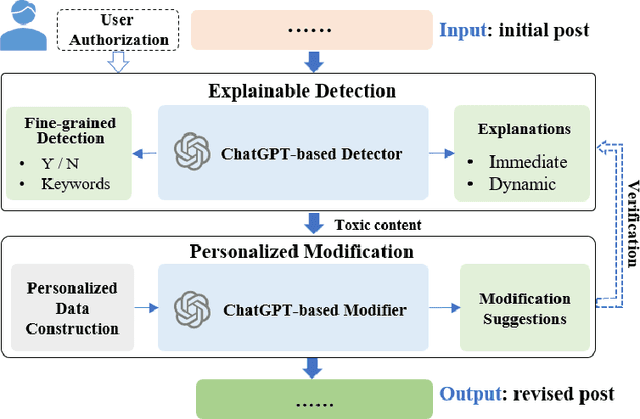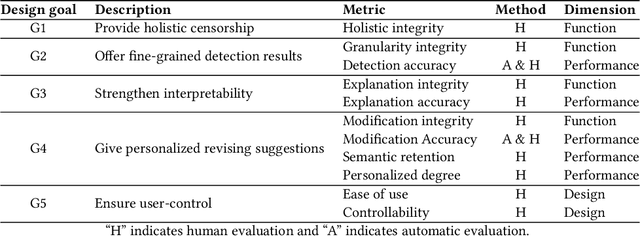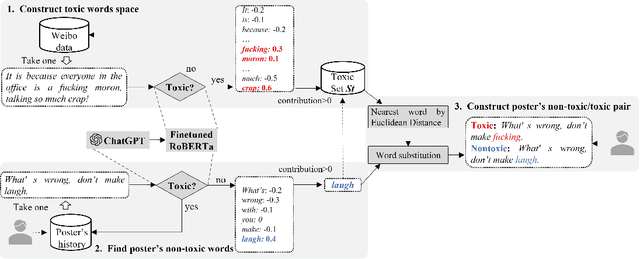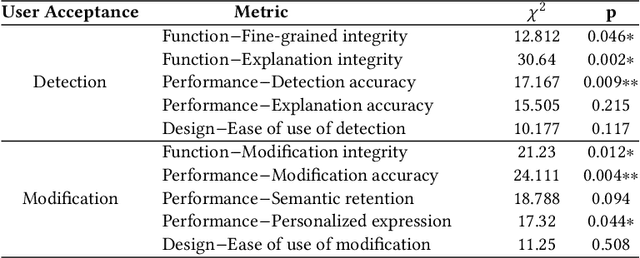Yubo Shu
SoulSeek: Exploring the Use of Social Cues in LLM-based Information Seeking
Jan 03, 2026Abstract:Social cues, which convey others' presence, behaviors, or identities, play a crucial role in human information seeking by helping individuals judge relevance and trustworthiness. However, existing LLM-based search systems primarily rely on semantic features, creating a misalignment with the socialized cognition underlying natural information seeking. To address this gap, we explore how the integration of social cues into LLM-based search influences users' perceptions, experiences, and behaviors. Focusing on social media platforms that are beginning to adopt LLM-based search, we integrate design workshops, the implementation of the prototype system (SoulSeek), a between-subjects study, and mixed-method analyses to examine both outcome- and process-level findings. The workshop informs the prototype's cue-integrated design. The study shows that social cues improve perceived outcomes and experiences, promote reflective information behaviors, and reveal limits of current LLM-based search. We propose design implications emphasizing better social-knowledge understanding, personalized cue settings, and controllable interactions.
Step-DeepResearch Technical Report
Dec 24, 2025Abstract:As LLMs shift toward autonomous agents, Deep Research has emerged as a pivotal metric. However, existing academic benchmarks like BrowseComp often fail to meet real-world demands for open-ended research, which requires robust skills in intent recognition, long-horizon decision-making, and cross-source verification. To address this, we introduce Step-DeepResearch, a cost-effective, end-to-end agent. We propose a Data Synthesis Strategy Based on Atomic Capabilities to reinforce planning and report writing, combined with a progressive training path from agentic mid-training to SFT and RL. Enhanced by a Checklist-style Judger, this approach significantly improves robustness. Furthermore, to bridge the evaluation gap in the Chinese domain, we establish ADR-Bench for realistic deep research scenarios. Experimental results show that Step-DeepResearch (32B) scores 61.4% on Scale AI Research Rubrics. On ADR-Bench, it significantly outperforms comparable models and rivals SOTA closed-source models like OpenAI and Gemini DeepResearch. These findings prove that refined training enables medium-sized models to achieve expert-level capabilities at industry-leading cost-efficiency.
DialogueReason: Rule-Based RL Sparks Dialogue Reasoning in LLMs
May 11, 2025Abstract:We propose DialogueReason, a reasoning paradigm that uncovers the lost roles in monologue-style reasoning models, aiming to boost diversity and coherency of the reasoning process. Recent advances in RL-based large reasoning models have led to impressive long CoT capabilities and high performance on math and science benchmarks. However, these reasoning models rely mainly on monologue-style reasoning, which often limits reasoning diversity and coherency, frequently recycling fixed strategies or exhibiting unnecessary shifts in attention. Our work consists of an analysis of monologue reasoning patterns and the development of a dialogue-based reasoning approach. We first introduce the Compound-QA task, which concatenates multiple problems into a single prompt to assess both diversity and coherency of reasoning. Our analysis shows that Compound-QA exposes weaknesses in monologue reasoning, evidenced by both quantitative metrics and qualitative reasoning traces. Building on the analysis, we propose a dialogue-based reasoning, named DialogueReason, structured around agents, environment, and interactions. Using PPO with rule-based rewards, we train open-source LLMs (Qwen-QWQ and Qwen-Base) to adopt dialogue reasoning. We evaluate trained models on MATH, AIME, and GPQA datasets, showing that the dialogue reasoning model outperforms monologue models under more complex compound questions. Additionally, we discuss how dialogue-based reasoning helps enhance interpretability, facilitate more intuitive human interaction, and inspire advances in multi-agent system design.
DeMod: A Holistic Tool with Explainable Detection and Personalized Modification for Toxicity Censorship
Nov 04, 2024



Abstract:Although there have been automated approaches and tools supporting toxicity censorship for social posts, most of them focus on detection. Toxicity censorship is a complex process, wherein detection is just an initial task and a user can have further needs such as rationale understanding and content modification. For this problem, we conduct a needfinding study to investigate people's diverse needs in toxicity censorship and then build a ChatGPT-based censorship tool named DeMod accordingly. DeMod is equipped with the features of explainable Detection and personalized Modification, providing fine-grained detection results, detailed explanations, and personalized modification suggestions. We also implemented the tool and recruited 35 Weibo users for evaluation. The results suggest DeMod's multiple strengths like the richness of functionality, the accuracy of censorship, and ease of use. Based on the findings, we further propose several insights into the design of content censorship systems.
RAH! RecSys-Assistant-Human: A Human-Central Recommendation Framework with Large Language Models
Aug 19, 2023



Abstract:The recommendation ecosystem involves interactions between recommender systems(Computer) and users(Human). Orthogonal to the perspective of recommender systems, we attempt to utilize LLMs from the perspective of users and propose a more human-central recommendation framework named RAH, which consists of Recommender system, Assistant and Human. The assistant is a LLM-based and personal proxy for a human to achieve user satisfaction. The assistant plays a non-invasion role and the RAH framework can adapt to different recommender systems and user groups. Subsequently, we implement and evaluate the RAH framework for learning user personalities and proxy human feedback. The experiment shows that (1) using learn-action-critic and reflection mechanisms can lead more aligned personality and (2) our assistant can effectively proxy human feedback and help adjust recommender systems. Finally, we discuss further strategies in the RAH framework to address human-central concerns including user control, privacy and fairness.
 Add to Chrome
Add to Chrome Add to Firefox
Add to Firefox Add to Edge
Add to Edge